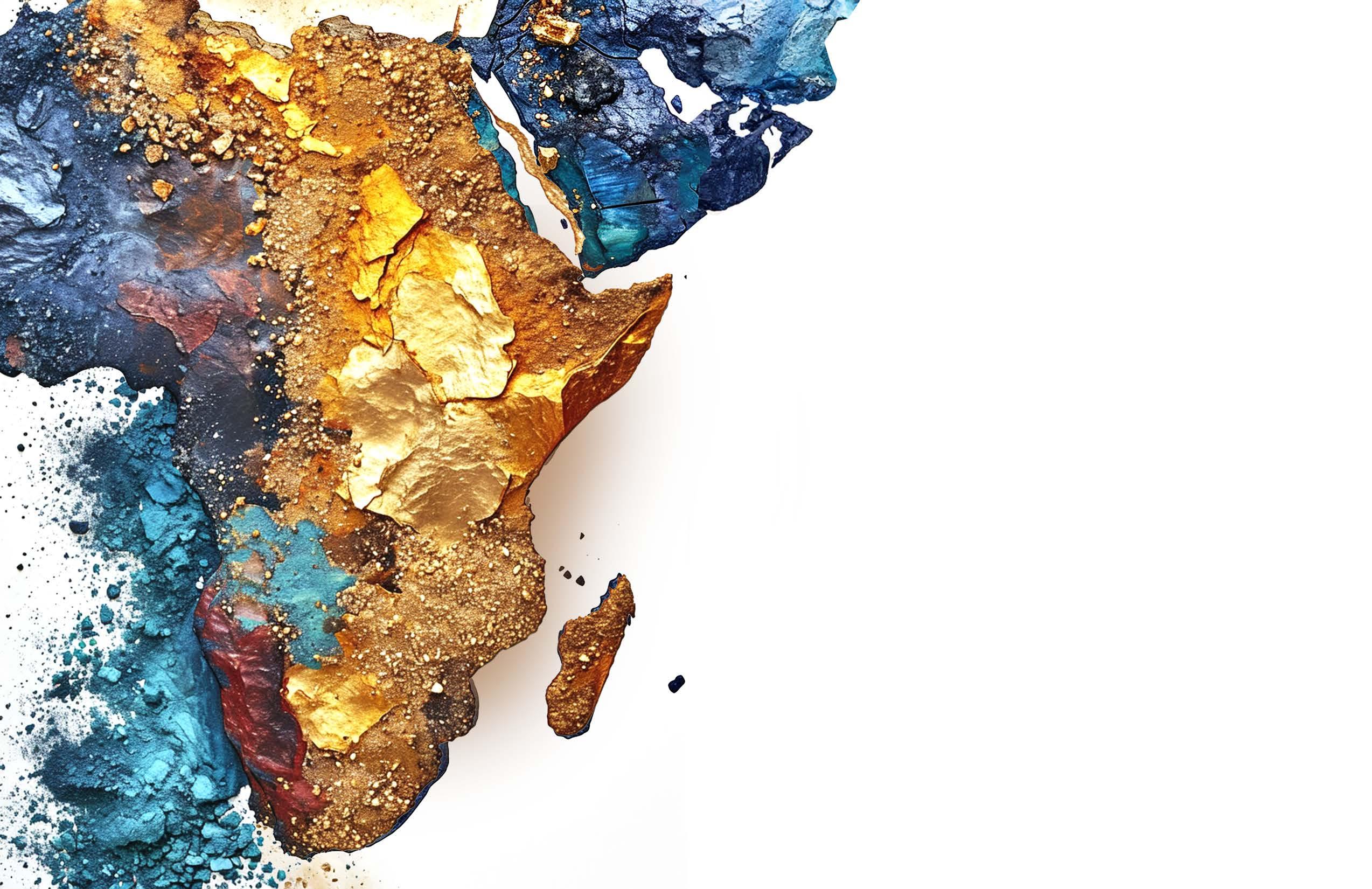
6 minute read
Africa's Economic Surge: A Beacon for Smart Investors
Africa is poised to outshine the global economic landscape, forecasting an impressive average real GDP growth of around 4% in 2023 and 2024, surpassing the projected global averages of 2.7% and 3.2%.
This revelation stems from the African Development Bank Group's latest report, "Africa’s Macroeconomic Performance and Outlook," unveiled in Abidjan. Despite facing substantial global socioeconomic challenges, the report identifies Africa's resilience across its five regions, emphasizing a steady medium-term outlook.
In particular, the report sends a reassuring signal regarding Africa's economic growth in 2022, which, despite a global economic slowdown, remained positive at 3.8%, demonstrating remarkable resilience across the continent. Notably, the top five performing economies preCovid-19, including Rwanda, Côte d'Ivoire, Benin, Ethiopia, and Tanzania, are projected to grow by over 5.5% on average in 2023-2024, reclaiming their positions among the world's fastestgrowing economies.
Smart Investment Opportunities Across Key Sectors
Amidst this promising economic landscape, the report underscores numerous investment opportunities in pivotal sectors that beckon smart investors globally. These opportunities span a diverse array of industries:
Agriculture: Africa boasts vast untapped agricultural potential. Investments in modernizing agriculture, enhancing productivity, and promoting sustainable practices present promising prospects for investors seeking to contribute to food security and capitalize on a growing market.
Energy Markets: With a focus on renewable energy, Africa is harnessing its vast natural resources to meet the increasing demand for power. Investors in the energy sector can explore opportunities in solar, wind, and hydroelectric projects, contributing to both economic growth and sustainable development.
Minerals: The continent's rich mineral wealth, including gold, copper, nickel, and uranium, offers lucrative prospects for investors in the mining sector. As global industries continue to rely on these minerals, Africa stands as a key player in meeting demand and providing valuable resources for various applications.
Health Infrastructure and Pharmaceuticals: The ongoing emphasis on healthcare infrastructure and pharmaceutical industries opens avenues for investors to contribute to improving healthcare access, promoting innovation, and addressing health challenges across the continent.
Light Manufacturing: Africa's burgeoning population presents an expanding market for light manufacturing industries. Investors can explore opportunities in manufacturing sectors such as textiles, electronics, and consumer goods, contributing to job creation and economic diversification.
Transport and Logistics: Infrastructure development, particularly in transportation and logistics, is crucial for connecting markets and facilitating trade. Investors can participate in projects that enhance connectivity, improve efficiency, and support economic integration.
Digital Economy: Africa's digital economy is rapidly evolving, offering opportunities in areas like fintech, ecommerce, and telecommunications. Smart investors can explore ventures that leverage digital technologies to address challenges and foster innovation across diverse sectors.
In conclusion, Africa's economic trajectory presents a compelling narrative for smart investors seeking strategic opportunities across key sectors. The continent's commitment to growth, coupled with its vast resources and untapped potential, positions Africa as a treasure trove of investment possibilities. As the global community witnesses Africa's resurgence, those with a keen eye for smart investments are poised to be pivotal contributors to the continent's journey toward sustained development and prosperity.

In 2024, Africa is poised to become the world's second-fastest-growing major economy, as per the Economist Intelligence Unit (EIU). The continent, home to a population exceeding 1.2 billion, is anticipated to surpass North America, South America, Antarctica, Europe, and Australia in growth estimates for the year. However, the dynamism of Asia, particularly fueled by China and India, is expected to outpace Africa in growth, according to the EIU's "Africa Outlook 2024: Strong Growth Amid Heated Elections and Financial Woes" report.
Despite facing external challenges from the COVID-19 pandemic, the RussiaUkraine conflict, rising debt, and inflation, Africa is poised for positive growth in the coming year. EIU forecasts that almost all African states will contribute to this growth, with only war-torn Sudan and struggling Equatorial Guinea expected to contract in 2024.
The research firm's analysis indicates that 12 out of the world's 20 fastestgrowing economies in 2024 will be in Africa. Notably, the continent, abundant in natural resources, is projected to witness an increase in real GDP growth from 2.6 percent in 2023 to 3.2 percent in 2024.
Foreign investors and economic observers are advised to closely monitor East African nations, particularly Kenya, Ethiopia, Uganda, Rwanda, and Tanzania, as the region is expected to be the most dynamic part of the continent in terms of economic growth. The services sector, including travel, tourism, hospitality, transport, logistics, and financial and telecommunications industries, is anticipated to play a major role in driving the economies of East Africa. Resource-intensive economies and major commodity exporters are expected to perform well due to the intense competition and high prices for
Africa's supplies of hydrocarbons, mining sector output, and agricultural produce. Substantial investment is projected to flow into Africa's energy sector ventures, as well as minerals and metals crucial to the global energy transition and digital transformation.
The anticipated positive performance of resource-intensive economies and major commodity exporters in Africa is grounded in several key factors that contribute to their resilience and attractiveness to investors:

High Demand and Competition:
Africa's vast natural resources, including hydrocarbons (oil and gas), mining outputs (such as minerals and metals), and agricultural produce, are in high demand globally. The continent's position as a key supplier creates intense competition among nations seeking access to these critical resources.
Global Price Trends: The expectation of high prices for Africa's commodity exports, including hydrocarbons, minerals, and agricultural products, enhances the economic prospects of exporting countries. The global market's demand-supply dynamics, coupled with rising commodity prices, contribute to the favorable economic outlook for resource-intensive economies.
Energy Sector Investment: Africa's energy sector holds significant potential for growth and investment. As the world focuses on transitioning to cleaner and more sustainable energy sources, the continent's hydrocarbon resources become strategic assets. Investors are likely to channel substantial funds into exploration, production, and infrastructure development within the energy sector.
Minerals and Metals in Digital
Transformation: The increasing global demand for minerals and metals crucial to the digital transformation, such as cobalt, lithium, and rare earth elements, positions African countries with these resources as key players in the evolving digital landscape. These minerals are essential components in renewable energy technologies, electric vehicles, and electronic devices.
Attractiveness for Investment: The combination of abundant natural resources, growing demand, and a strategic focus on sectors crucial to global trends makes African nations attractive destinations for foreign direct investment (FDI). Governments and businesses in these countries may benefit from increased investment inflows, contributing to economic development and job creation.
Economic Diversification: Resourcerich economies can leverage their earnings from commodity exports to diversify their economic base. Investing in sectors beyond traditional commodities, such as technology, manufacturing, and services, can contribute to sustainable and resilient economic growth.
Strategic Importance in Global Supply Chains: Africa's role in global supply chains for essential commodities places it in a strategic position. In times of geopolitical uncertainties or disruptions in other parts of the world, African nations with abundant and stable supplies can become preferred partners, ensuring a reliable flow of critical resources.
In summary, the positive outlook for resource-intensive economies in Africa is driven by the continent's rich endowment of natural resources, high global demand, rising commodity prices, and strategic relevance in the context of global energy transition and digital transformation. This creates a favorable environment for substantial investments and economic growth in these nations.











